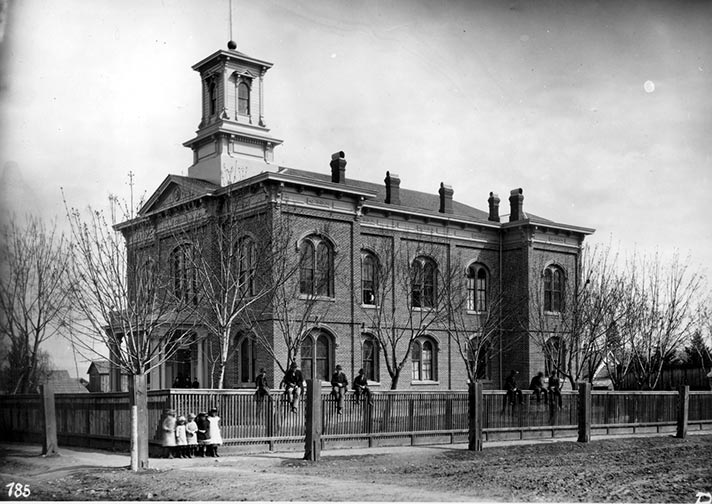On Real Estate & More – September 2020
Jacksonville has become a desirable place for both travelers and residents alike. Part of the appeal is the charming architecture, a well-preserved example of a 19th-century western mining town.
One of the oldest communities in Oregon, Jacksonville began with the discovery of gold in 1851. Miners flocked to the Rogue Valley to seek their fortune. A thriving mining camp emerged along the gold-lined creek beds and, before long, the bustling camp was transformed into the town named “Jacksonville.” By January of 1853, when it became the county seat of the newly-created Jackson County, Jacksonville had a population of 900. In the same year, a disastrous fire consumed most of the wood-framed commercial core, but because the town was at the height of its prosperity, it was quickly rebuilt, this time primarily in brick.
The railroad passed the town by for a more expedient and less costly route, which laid the groundwork for Jacksonville’s demise as the county seat. It lapsed into a quiet, financially depressed period as Medford grew into the regional hub.
But that is also what eventually saved the town. With no economic reasons to improve the buildings they remained unchanged. In 1962, a proposal to route the new Highway 238 through the town of Jacksonville galvanized its residents into action. The opponents of the highway project were successful, but also realized that their efforts would need to continue in order to preserve the remarkable collection of Western, gold boom-town properties. In 1967 the core of the town was designated a National Historic Landmark, and in 1977, a larger formal boundary, that included the supporting residential neighborhoods, was adopted by the National Landmark Advisory Board. More than 100 individual buildings are on the National Register of Historic Places.
Because Jacksonville is a National Historic Landmark District, residents today that wish to make exterior modifications to any structure should contact the City of Jacksonville Planning Department since most development requires some level of review to ensure compliance with standards that have been adopted by the community. The Planning department is also responsible for implementing the historic chapter of the Jacksonville Development Code. Public hearings regarding modifications to historic properties are held by the Jacksonville Historic & Architectural Review Commission and Planning Commission. For questions regarding design review, what modifications can be made to a historic property, historic listing status for a property, or how to research your home or property—reach out to the Planning Department staff for assistance.

 Sandy J. Brown lives in Jacksonville and is a real estate broker and land use planner with Windermere Van Vleet Jacksonville. She can be reached at sandyjbrown@windermere.com or 831-588-8204.
Sandy J. Brown lives in Jacksonville and is a real estate broker and land use planner with Windermere Van Vleet Jacksonville. She can be reached at sandyjbrown@windermere.com or 831-588-8204.